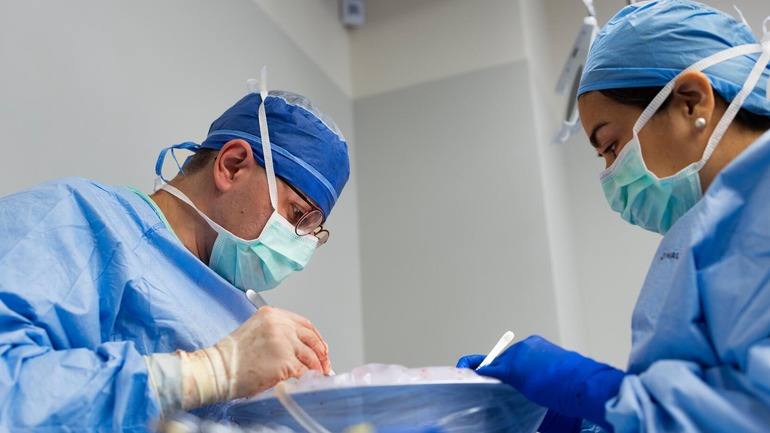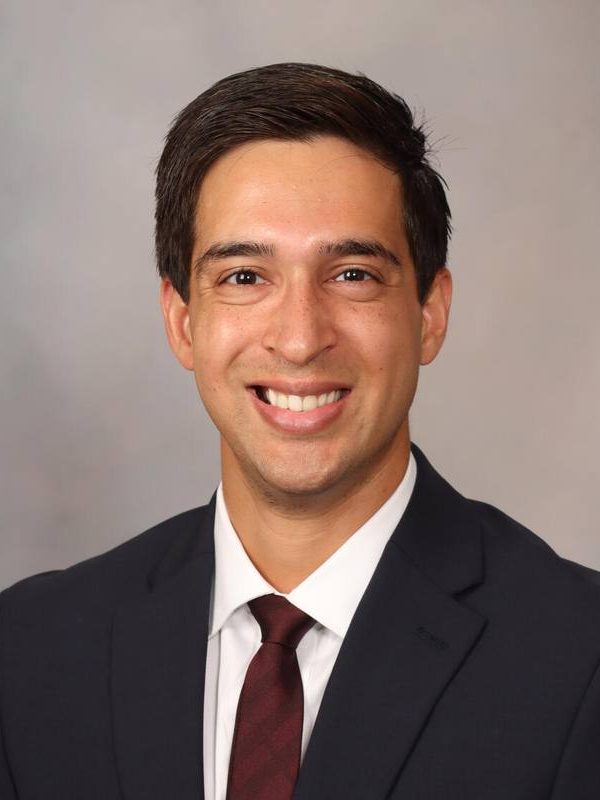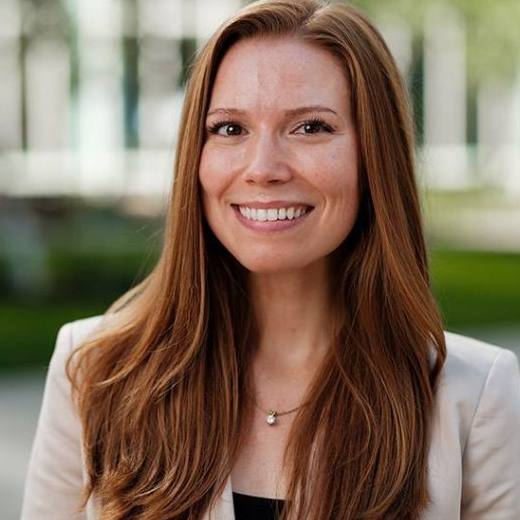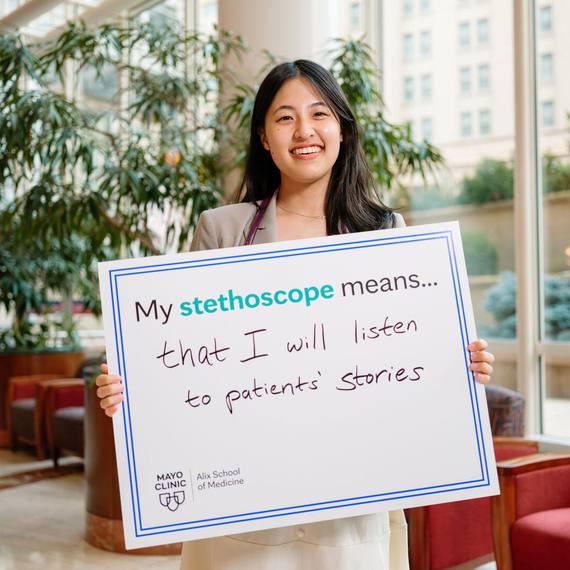-
Mayo Clinic-trained transplant surgeon instills educational excellence in next generation

As a transplant surgeon, Timucin Taner, M.D., Ph.D., is a world-renowned physician and researcher. He has authored more than 100 peer-reviewed publications, performed pioneering surgeries and received numerous awards and honors. As an educator, Dr. Taner is training the next generation of transplant surgeons — just as he was trained when he began his residency in general surgery at Mayo Clinic School of Graduate Medical Education (MCSGME) 15 years ago.
In his role as division chair of transplantation surgery, Dr. Taner takes pride in Mayo's strong legacy of transplant surgery training. Mayo Clinic in Rochester has been training transplant fellows continuously since 1979, making it one of the oldest training programs in the United States.
A fellow is a graduate of medical school who has already finished their residency. Doctors pursue a fellowship to gain expertise in a specialized area of medicine, such as transplant surgery. During a fellowship, a doctor follows a specialist closely to get even more education in a single field of medicine.
"We really are preparing our fellows to become leaders in the field,” says Dr. Taner, "and every year, the interest and applications from our residency programs increases."
Mayo Clinic's abdominal transplant surgery fellowship, which Dr. Taner completed himself, offers a multidisciplinary approach that makes for well-rounded training, with fellows getting to work with hepatologists, nephrologists and endocrinologists. This is a strength of the program, according to Dr. Taner, as it ensures that fellows can take care of a patient not only in the operating room but also in the pre- and post-operative periods. Additionally, fellows must do a certain number of kidney, liver and pancreas transplants to be certified as an abdominal transplant surgeon.
An educational journey
After completing a medical degree, Dr. Taner earned his Ph.D. in transplant immunology. While in his doctoral program, he decided to become a transplant surgeon, beginning with a General Surgery residency with MCSGME in Rochester. After residency, he stayed at Mayo to complete the fellowship in abdominal transplant surgery. Dr. Taner looked at 10 other fellowship programs but ultimately decided there was no better program than Mayo's.
“I was truly ready when I took my first call on staff about a month after I finished my fellowship,” he says. “I still think it was one of the best training programs back then, as it is now.”
Part of what helps prepare fellows for the rigors of transplant surgery is the program's team-based approach. Nurse practitioners and physician assistants are incorporated into patient care, allowing the fellows to focus more on the surgical aspects of their training. Since Dr. Taner's time as a fellow, there is now a greater emphasis placed on the use of robotics in surgery. But what hasn't changed, he says, is the tremendous investment Mayo makes in training its surgical fellows.
The next generation of transplant surgeons
Omar Haque, M.D., M.P.H., understands that investment. Dr. Haque is a fellow in the Abdominal Transplant and Hepatopancreatobiliary (HPB) Surgery Fellowship in Rochester. He graduated from Mayo Clinic Alix School of Medicine and, after completing his surgical residency in Boston, was eager to come back home to Mayo Clinic for his fellowship.

"This was my top choice for fellowship. There is a long line of outstanding surgeons who trained here," says Dr. Haque. "I knew and trusted the Mayo environment, and it still felt like I was a part of the family here. Plus, if Dr. Taner was chosen to lead this institute, then it must be in good hands."
Very few institutions offer a dual fellowship in abdominal transplant and HPB surgery in two years, says Dr. Haque, who appreciates the versatility that this training offers him. The program is dual accredited by the American Society of Transplant Surgeons (ASTS) and the Americas Hepato-Pancreato-Biliary Association (AHPBA), which structures the training to include four rotations: donor procurements, kidney transplant, liver transplant and HPB surgery.
Since his fellowship began, Dr. Haque says he has received outstanding technical training and has been pleasantly surprised with how much operative autonomy Mayo Clinic gives its fellows. Eight months into a two-year fellowship, Dr. Haque feels independent in the majority of transplant operations, which is something he says is rare among other transplant fellowships.
In addition to being drawn to the world-class surgical training and the values of Mayo Clinic, Dr. Haque admits there was another factor in making his fellowship decision.
"Dr. Taner is one of the major reasons I came here. Not only is he one of the most technically talented surgeons I've ever come across, but also one of the most humble and kind," says Dr. Haque. "He is always there to support his fellows and treats everyone fairly, and that's really special coming from your chair."
###
About Mayo Clinic School of Graduate Medical Education
MCSGME currently offers fellowships in three transplant surgical specialties, spanning all three Mayo campuses. Fellows perform hundreds of organ transplants annually and are active in transplant practice in the U.S. and abroad.
Mayo Clinic Graduate School of Medical Education is one of the nation’s oldest and largest institutions of graduate medical education and has more than 2,000 learners enrolled in programs across the country. Of those more than 300 programs, 197 are accredited by the Accreditation Council for Graduate Medical Education (ACGME), and 95 percent of Mayo’s GME training programs are above the national average in board passage rates.







